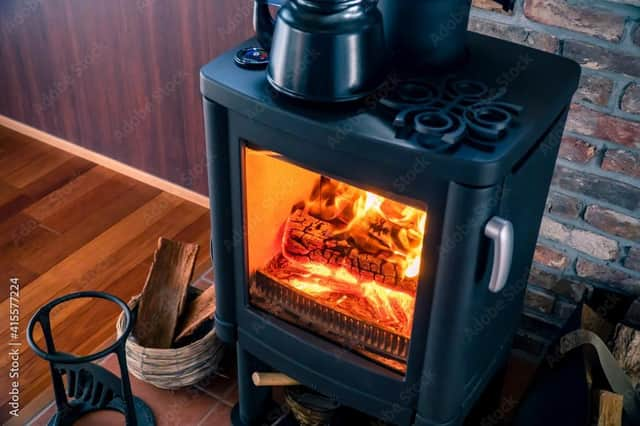Going Green: Impact of wood burners on air pollution


Every time I’m asked a question about wood burning stoves I take a deep breath before answering because this subject can be very marmite for people as they conjure up Images of winter walks to country pubs but If people have asthma It Is not a pretty picture.
People are often shocked that wood burning stoves emit 750 times more particulate matter than a modern HGV truck.
Advertisement
Hide AdAdvertisement
Hide AdWood burners and open fires are the second biggest source of small particle air pollution in the UK.
Even homes with eco burners - designed to burn more efficiently - are three times more polluted than those without. They’re also twice as bad as gas boilers when it comes to CO2.
Put simply, they’re pretty bad news for the environment even if what you’re burning is clean and sustainable wood.
Around 1.5 million Brits own a wood burner but the government is introducing new rules.
Advertisement
Hide AdAdvertisement
Hide AdBurners in designated smoke control areas – which cover almost every town and city in the UK – are only allowed to emit three grams of smoke per hour down from five grams.
Anyone found in breach of the new rules could be given an on the spot fine of £300.
Even if you stick within the guidelines though, there are still other issues with wood burners,.
Firstly, unless your flue or chimney is properly swept, you risk having a chimney fire in your home that can spread. You also need a carbon monoxide alarm.
Advertisement
Hide AdAdvertisement
Hide AdSecondly, during the cost of living crisis, some people are tempted to pick up any wood they can find, often dumpster diving to get off cuts or timber but they are often treated and can emit noxious gases or substances that can harm human health. Some treated wood can release arsenic when it’s burned which is poisonous.
Painted wood often releases chemicals when it’s burned as paint can be packed with different chemicals which can cause breathing issues.
Older stoves are less eco friendly than newer versions and manufacturers are continually trying to improve stoves so if you’re insistent you won’t get rid of it entirely, it’s worth having a look at a more environmentally friendly version.
In terms of what you can buy to burn, DEFRA have a certified list of manufactured solid fuels which you can find here: https://smokecontrol.defra.gov.uk/fuels.php?country=england The general rule of thumb Is to use dry and clean logs as opposed to wet wood or treated timber. Hardwoods burn longer than softwoods but are more expensive.
Advertisement
Hide AdAdvertisement
Hide AdIf you can, try and limit the use of your wood burner too. I know that’s easier said than done and they can be a way to relax– fire wasn’t called ‘cave man tv’ for nothing.
But if you can limit the use, you’ll be helping out the environment and your health as well as your neighbours a lot.